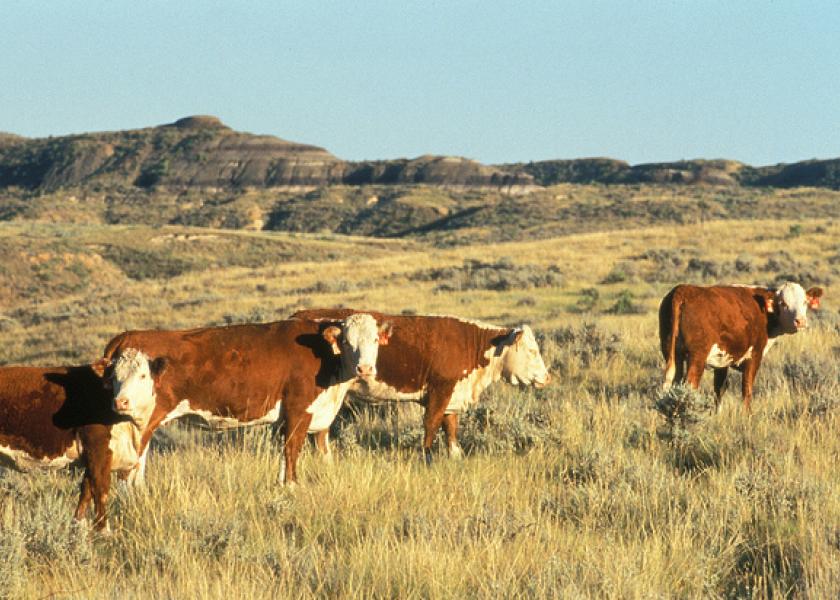Gene in High-altitude Cattle Disease Sheds Light on Human Lung Disease

Vanderbilt University researchers have found a genetic mutation that causes pulmonary hypertension in cattle grazed at high altitude, and which leads to a life-threatening condition called brisket disease.
Their findings, reported yesterday in Nature Communications, may shed light on human lung disease, in particular, the mechanism behind non-familial pulmonary hypertension in patients with conditions such as emphysema and pulmonary fibrosis.
"A genetic variant in cattle might tell us why some humans get into trouble at sea level and at altitude," said first author John H. Newman, M.D., the Elsa S. Hanigan Professor of Pulmonary Medicine at Vanderbilt University Medical Center.
When the lung experiences low oxygen, or hypoxia, the blood vessels of the lung constrict. Over time in continued hypoxic conditions, these vessels become muscularized, resulting in pulmonary hypertension, high blood pressure in the blood vessels of the lung.
Lowland cattle can develop pulmonary hypertension after being at high altitude over a period of six months to a year.
Brisket disease, or right heart failure, develops when the heart fails to pump against the high pulmonary blood pressure. If these animals are not brought to lower altitudes, they will die. Brisket disease costs millions of dollars of loss each year in the Rocky Mountains, where the herds graze.
Fifteen years ago, Newman, James Loyd, M.D., Rudy W. Jacobson Professor of Pulmonary Medicine, and colleagues identified the genetic basis for familial pulmonary hypertension in humans, mutations in a gene called BMPR2.
"I was sitting in our conference room after we had found the BMPR2 gene in humans and I thought, well, we should be able to find the brisket gene in cattle using the same strategy," Newman said.
In collaboration with Timothy Holt, D.V.M., an internationally known expert on brisket disease at Colorado State University, the Vanderbilt group set out to identify a genetic component for this condition.
Holt evaluated cattle herds for pulmonary hypertension and sent blood samples to the lab of John A. Phillips III, M.D., where DNA was extracted and analyzed. Phillips is David T. Karzon Professor of Pediatrics and director of the Vanderbilt Division of Medical Genetics and Genomic Medicine.
Newman, Phillips and their colleagues, including Rizwan Hamid, M.D., Ph.D., Joy Cogan, Ph.D., and James West, Ph.D., discovered that most of the cattle with high-altitude pulmonary hypertension had a double mutation in a single gene that expresses hypoxia inducible factor, HIF2alpha.
At low altitude, the HIF2alpha protein is continually degraded and has no effect. However, in a hypoxic environment, it is activated and initiates a series of events to combat physiological effects of low oxygen.
The mutation found in the cattle renders the protein resistant to degradation, resulting in excessive pulmonary hypertension.
The Vanderbilt group is currently working on a test to help ranchers determine which cows carry the genetic susceptibility and should remain at low altitude. This test might reduce the prevalence of brisket disease and save ranchers costly losses of stock.
Source: Vanderbilt University Medical Center







